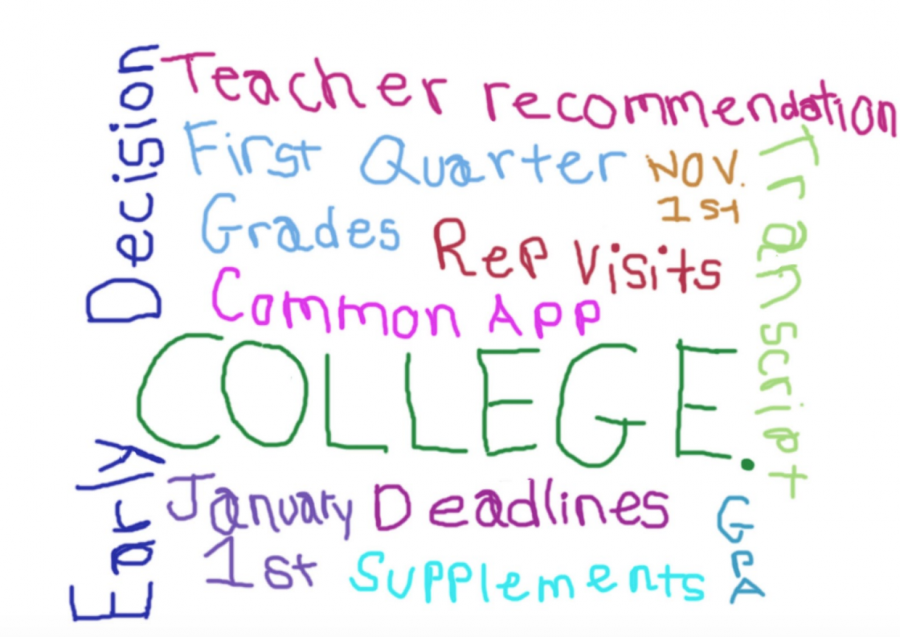By Renee Weisz
Common app, early decision, transcript requests, teacher recommendations, college. All are familiar buzzwords clouding seniors’ minds during this last week of the quarter. Yet, for teachers, this list is viewed differently in regards to their classes and assignments.
Despite the intensity of the college process during the beginning months of the school year, many teachers are unable to adjust their curriculum in order to accommodate the additional application workload. “I am aware that the college process can be a stressor, however, I still have a set amount of curriculum that I need to get through by the end of the year,” science teacher Christine Kaszanek said.
AP classes are especially limited in flexibility due to the required material they must cover by a specific test date. Kaszanek shares a similar view on her AP environmental science classes to social studies teacher Eric Mongirdas who teaches AP US government and politics and AP US History. “It’s tough in an AP course. We just have so much material that we have to get through, so it’s really difficult,” he said.
Though teachers seem to agree on the fairness of sticking to curriculum, seniors have mixed reactions to the burden of their full-speed school assignments layered with dozens of college essays.
Students like Katherine Weinshenck ’17 have noticed effects on academic performance. “It’s not that applying to college is taking time away from studying, it’s just that the pressure of getting in makes everything seems high stakes, which probably ironically is negatively affecting my grades,” she said. Weinshenck has also seen effects on her mental and physical health including fatigue and lack of exercise.
Others like Jay Mudholkar ’17 have found no substantial impact on their grades or health habits. In fact, Mudholkar believes his college process has been significantly eased by teachers’ sympathetic attitudes towards missed class for college representative visits and college related activities.
“One teacher I love is Ms. Woodman, my computer science teacher,” Mudholkar said. “I’ve had to miss some of her classes due to these visits, and she has been very helpful in making sure I am caught up and on top of things. I am very grateful for her.”
Kaszanek acknowledges the college visit benefit of exposure to many schools yet maintains that it is the student’s independent responsibility to make up any missed content in her classes. “I would highly encourage them to try not to miss the same class more than once, if possible, to limit the college visits to ones that they are serious about applying to,” she said.
Though this time of the year can be hectic, social studies teacher Kelly Zrenda reminds students that this stress is only temporary.
“I think you’ve got to remember yes it’s stressful time,” she said, “everyone goes through it, but it does come to an end.”














































